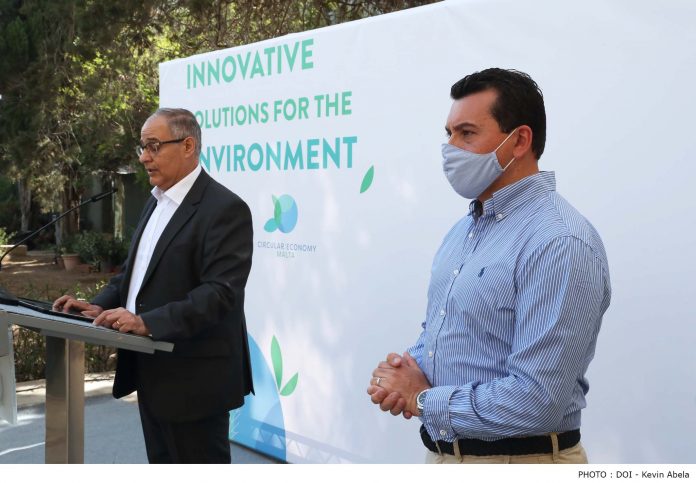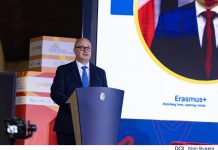
Urbanisation and industrialisation have accelerated our country’s shift towards a linear economic model which has a major impact on our limited resources, Minister for the Environment, Climate Change and Planning Aaron Farrugia said.
“That is why, through our action plan, we will continue to lead our country towards a circular economy, a sustainable model which is offering our country a new economic niche,” the Minister said, announcing that the agency previously known as the Resource Recovery and Recycling Agency (RRRA) has been given a name that better reflects the principles by which it will function.
Circular Economy Malta (CEMalta) will work to create a business environment whereby producers would be responsible for the products placed on the market, from placement on market until the end of product life.
The Minister said that CEMalta will continue to align Malta to the principles and philosophy of the Extended Producer Responsibility.
The agency will be working on a number of projects and initiatives, including the beverage container refund scheme, end-of-life waste tyres, construction waste, food waste, and textile waste.
“Industrialisation has accelerated the pace of human beings to control nature, and has catalysed the linear economy. The population has continued to grow rapidly, and urbanisation is excessively consuming the planet’s limited resources and polluting ecosystems. This is also contributing to extreme weather conditions and rising sea levels. All this calls for a transition. Nature itself inspires the concept of a circular economy where resources are most valued. Every element of nature is being used continuously by turning waste into resources repeatedly, using principles such as reduction, reuse and recycling,” said Minister Farrugia.
The Minister explained that the circular economy has the potential to bring great benefits to our country; economic growth, growth in certain industries, green jobs and, above all, a more sustainable, resilient economy and a healthier environment. “We are on the right track through various measures that we have implemented, as we banned the importation of single use plastics in our country and started implementing the largest investment in waste management with the ECOHIVE project. Through this effort we will reduce the pressure on the natural environment around us, we will improve the security of our resources and we will see our country become more competitive and more resilient,” said Minister Farrugia.
The Minister said that this year a number of reverse vending machines will be distributed across the Maltese islands to showcase and help consumers familiarise themselves with the Beverage Container Refund Scheme, which is administered by CEMalta.
Additionally, this year the operator of the Scheme, BCRS Malta Ltd, will kickstart the national educational campaign. All producers, retailers, catering undertakings, importers and distributors of beverage containers should be registered with BCRS Malta Ltd for the scheme to successfully commence its operations in 2022.
The Minister said that, in 2019, Malta reported around 2,200 tons of end-of-life waste tyres. In view of this, it is evident that Malta needs to treat end-of-life tyres in an environmentally-sound manner, in line with the principles of the circular economy and extended producer responsibility. To this end, the Ministry, ERA and CEMalta have embarked on a programme to design an extended producer responsibility scheme to address this particular waste stream.
“Another waste stream which needs to be addressed is food waste, which is laid out in the Waste Management Plan. Through the diversion of such waste streams from ending up in landfills, they could easily be used for the benefit of society in general. To this end, the Agency together with the Ministry shall be supporting the utilisation of digital channels and applications for food redistribution initiatives and food sharing initiatives within communities. The implementation of this measure shall boost social connectivity and community inclusion, as well as saving food which is suitable for human consumption from becoming waste,” the Minister said.
CEMalta CEO Anthony Rizzo said that the fundamental principles of the circular economy are geared towards the achievement of a substantial reduction in the use of resources and the lengthening of the product life-cycle, which call for innovative solutions to the product design. Essentially, this means re-thinking waste as a valuable resource.









